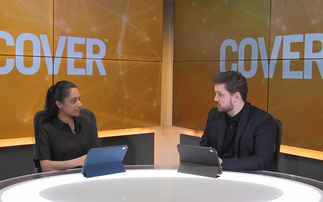Andrew Wibberley adds his views to the SARs debate and what underwriting will look like in the future.
The Subject Access Report (SAR) is to life insurance what the mini-disc was to the music industry.
A significant step forward at the time, but ultimately with the real game changer close behind.
Acronyms, medical terminology and a lot of bluster about a technicality give this all the hallmarks of a classic insurance talking point.
These shouldn't obscure more significant potential developments in the future though.
By and large doctors don't enjoy completing insurance medical reports, and they're not very good at doing them. They are asked questions that they've not been trained to answer.
Doctors make people better. They don't predict what things in someone's past might make it more likely that they'll make a CI or IP claim.
It's perhaps like asking an accountant to give financial advice. It's not their job, and it's neither fair nor efficient to ask them to do it.
The ultimate battle here isn't really about the ICO's views of a couple of insurance companies approach to SARs.
For the purposes of this article let's say that SARs weren't devised for this purpose, and their use in this form is likely in line with the letter of the law, although many feel not in line with the spirit of it.
Moving forward, Jeremy Hunt's intentions are clear: "By 2018 we will make sure that every NHS patient can access their whole medical record, and we're going to try and make sure that [there] is a read and write access as well, so they can actually contribute to their own medical record."
Pilots are already underway, and even cynics may have to accept that whilst 2018 may be ambitious this will happen sooner rather than later.
This fundamentally moves the potential relationship we have with customers who choose to share their data.
If people are to trade this sensitive information it's reasonable to assume they will demand a significantly better proposition and clear safeguards about the use of their data.
What then could this proposition for a mortgage applicant look like? It seems unlikely that a few pence less a month on the premium would be considered value for information for the person with their own medical records.
So consider an alternative process altogether. A process that asks no medical application questions at all and guarantees a decision well before the customer takes out the mortgage.
Critically no medical questions would mean no misrepresentation and so claims payment could be guaranteed - and approved instantly.
These changes would then mean a proposition with a 100% instant claims payout.
This is fundamentally different - fundamentally better - than the current normal of a 95% claim payout at an average time of 70 days.
This is not distant future gazing, but is possible with underwriting systems and teams that have been built around the SAR process and the changes being made today to NHS technology.
Different variants of this approach could open up large new markets as both sales and claims journey becomes quicker and more certain.
It is my belief that in a decade we won't be talking about SARs, but they will have been a step moving us away from the habit of asking GPs what they think.
They mark a change to a fundamentally different form of data sharing, and one which has the potential to revolutionise our world as the iPod did the music world.
Andrew Wibberley, director, Alea Risk.
Further reading










